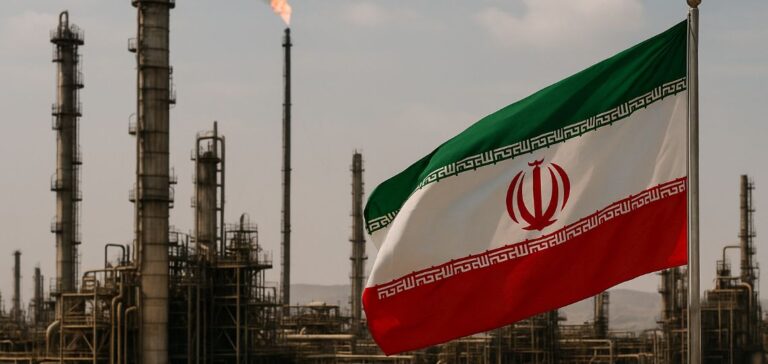Iran stated on Friday that US-imposed sanctions would not alter its policy, calling the measures contrary to international law. This response follows President Donald Trump’s announcement of an immediate tightening of sanctions targeting countries and entities trading with the Islamic Republic in oil and petrochemical products.
In a message posted on the Truth Social platform, the US President ordered that “all purchases of Iranian oil or petrochemical products must stop, NOW,” threatening indirect sanctions on any violators. This directive is part of the US administration’s “maximum pressure” strategy aimed at restricting the Iranian government’s economic resources.
Tensions heightened by France’s position
Meanwhile, French Minister of Foreign Affairs Jean-Noël Barrot stated that European powers would reinstate the sanctions lifted under the 2015 agreement if Iran did not undertake a “marked, verifiable, and robust rollback” of its nuclear programme. This position was expressed following a meeting in Washington with US Secretary of State Marco Rubio.
The spokesperson for Iran’s Ministry of Foreign Affairs, Esmaeil Baqaei, responded by denouncing these as “open threats” and warned that such remarks reinforced the perception that “France risks shifting into the role of a spoiler.” Iran also announced the cancellation of a planned meeting with representatives from France, the United Kingdom and Germany, following the postponement of bilateral talks with the United States.
Nuclear agreement still on hold
The multilateral framework established under the 2015 agreement—signed with France, Germany, the United Kingdom, China, and Russia—officially remains in force until October 2025. The deal provided for a reduction in Iran’s nuclear capabilities in exchange for the lifting of international sanctions. However, its effectiveness has been significantly undermined by the US withdrawal in 2018 under Donald Trump’s first term.
Talks between Iran and the United States were expected to continue this week but were postponed for logistical reasons, according to the Omani mediator. Iranian Foreign Minister Abbas Araghchi stated that Tehran remains willing to conclude a “fair and balanced agreement,” provided it guarantees the lifting of sanctions.
Potential impact on export channels
Rising tensions between Iran and Western powers are creating an atmosphere of uncertainty for oil markets, particularly for buyers in Asia, Africa and the Eastern Mediterranean. New threats of secondary sanctions may force energy sector players to revise their procurement strategies.
Iran has not announced any immediate adjustments to its export channels but continues to stress the legal legitimacy of its commercial activities. No specific information has been provided regarding potential countermeasures in response to tightening US restrictions or European warnings.






















